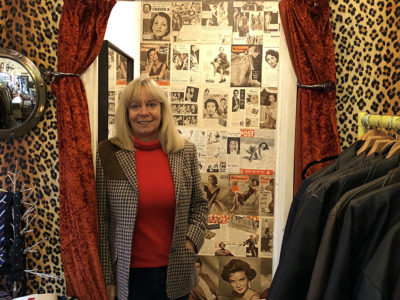Myths and Tips
The videos below tackle some of the myths that have grown around autism, there are many misconceptions about what it is to be autistic and setting the facts straight is step one on the long road to autism acceptance.
[youtube width=”200″ height=”150″]https://www.youtube.com/watch?v=xImnlEmElAo[/youtube]
[youtube width=”200″ height=”150″]https://www.youtube.com/watch?v=hc8Wn6KIH_4[/youtube]
Here are five top tips for managers to support autistic employees in the workplace.
1.Determine the most effective method of communication
Many autistic people prefer communications in writing so that they can take their time with processing the information. This means that they can also refer back to it when needed to overcome any anxiety they may feel about an instruction.
2. Use visual aids
People with autism tend to be visual thinkers so using whiteboards and calendars as well as electronic devices can help keep them organised so they can visually plan out their tasks.
3. Write down unwritten rules
How to behave in a work environment is not always apparent to those with autism. Writing these rules down will provide guidance and help autistic employees feel more included as part of the workforce.
4. Think about the work environment
A lot of workplaces can be loud and overwhelming for someone with autism, allocating autistic employees a quiet workspace or providing noise cancelling headphones can help increase productivity.
5. Find out what services are available to you as an employer
The National Autistic Society has many online resources available for employers to download. These resources offer advice on how to support and manage autistic employees.

Picture; SalFalko
The on-going fight to dispel autism myths and improve employment prospects.
Autism means different things to different people. The spectrum can cover everything from mild difficulties with social interaction to very unstable and aggressive behaviours. As a result of this broad scale employers are wary of taking on people with autism because it’s still largely misunderstood. In reality the majority of people with autism are more than capable of working in an array of workplaces, provided that businesses understand how to support them.
In Cardiff there are some great examples of individuals and organisations that are working hard to improve employability either by offering training and work experience or by simply offering support to both employers and employees.

The autistic spectrum is so broad that care and support has to be tailored to each individuals needs. Picture; 1DPuppyLoverForever
Opening doors
Only 15% of people with autism are employed in full time work. Of the autistic adults claiming benefits, 79% have expressed a desire to work but getting jobs has proved very challenging indeed. In October this year Liz Stewart opened the first autism friendly hairdressing salon, SP1, in Rhiwbina. Liz’s son Delroy has Down’s syndrome and he now manages the salon, they also employ staff with autism and offer training opportunities. Liz says that, “The main inspiration to open the salon was my son because there were no job opportunities around for people with additional needs and that’s why we offer training here.”

People with autism are often overlooked for employment, but there’s a lot they can do and often they do it very well. Picture; BLAcKjaCK0304
Liz explained that Delroy had finished college earlier this year and applied for many jobs with no success. She believes that it’s a real struggle to get employers to take on employees with autism and other behavioural disabilities, “It’s not their fault and there are thousands of people in their position looking for work.” Liz hopes that the salon is just the beginning and that as the business expands she will be able to offer more and more job opportunities to those with additional needs. Liz works part time at the salon and isn’t currently receiving a wage from the business so she can pay her four employees.
“There’s a lot of diverse opinion about how autism should be portrayed and discussed, we’re not asking people to agree with our take on it but we are asking them to engage with it”
Liz doesn’t think that there’s enough happening to support young autistic adults with finding work, “It’s almost as if our kids reach a certain age and everything just stops,” she says. Liz did however speak fondly of Whitchurch based charity Autism Puzzles who recently launched a new scheme called Autism Champions. The scheme aims to train businesses so that they are able to employ and manage autistic individuals. Autism Puzzles is a charity run by parents of autistic children, they frequently run drop in sessions, information workshops and training sessions as well as family fun days.
No quick wins
The Cardiff and Vale branch of the National Autistic Society is entirely made up of parents offering support services. Lynda Morgan is one such parent, not only is she heavily involved with the support group but she also has a job and works one day a week at Cardiff University in the Autism Research Centre.
Lynda believes that things are improving, “Compared to five years ago there’s a lot more going on to improve employability.” However whilst there are a lot of initiatives out there not all are seeing results. Lynda says that, “Some of the courses offer work experience for a couple of weeks but nothing further, whereas others are about getting people into full time jobs and keeping them there.”

It wasn’t so long ago that vaccination was believed to cause autism; medical experts have since thrown out the theory. Picture; Amanda Mills
“There are no quick wins with this,” says Lynda. “It will take some time to see whether or not the initiatives are actually having an impact.” There are also events happening in and around Cardiff to raise awareness about autism more generally. In early December Touch Blue, Touch Yellow was performed at Chapter Arts Centre. Written by Tim Rhys, the play attempts to dispel some of the myths and misconceptions that surround autism. Chris Durnall says that “There’s a lot of diverse opinion about how autism should be portrayed and discussed, we’re not asking people to agree with our take on it but we are asking them to engage with it.”
Getting people to engage and discuss autism is key to dispelling the reservations that business owners have about hiring someone with autism. There’s a lot happening in Cardiff at lots of different levels to encourage businesses to take on autistic staff. Thanks to the hard work of determined parent organisations such as Autism Puzzles and ventures like SP1 and Touch Blue, Touch Yellow, autism is being brought more and more into the light. Hopefully this growing focus will lead to more opportunities for autistic individuals to show employers all that they have to offer.
Myths and Tips
The videos below tackle some of the myths that have grown around autism, there are many misconceptions about what it is to be autistic and setting the facts straight is step one on the long road to autism acceptance.
[youtube width=”200″ height=”150″]https://www.youtube.com/watch?v=xImnlEmElAo[/youtube]
[youtube width=”200″ height=”150″]https://www.youtube.com/watch?v=hc8Wn6KIH_4[/youtube]
Here are five top tips for managers to support autistic employees in the workplace.
1.Determine the most effective method of communication
Many autistic people prefer communications in writing so that they can take their time with processing the information. This means that they can also refer back to it when needed to overcome any anxiety they may feel about an instruction.
2. Use visual aids
People with autism tend to be visual thinkers so using whiteboards and calendars as well as electronic devices can help keep them organised so they can visually plan out their tasks.
3. Write down unwritten rules
How to behave in a work environment is not always apparent to those with autism. Writing these rules down will provide guidance and help autistic employees feel more included as part of the workforce.
4. Think about the work environment
A lot of workplaces can be loud and overwhelming for someone with autism, allocating autistic employees a quiet workspace or providing noise cancelling headphones can help increase productivity.
5. Find out what services are available to you as an employer
The National Autistic Society has many online resources available for employers to download. These resources offer advice on how to support and manage autistic employees.

Picture; SalFalko




